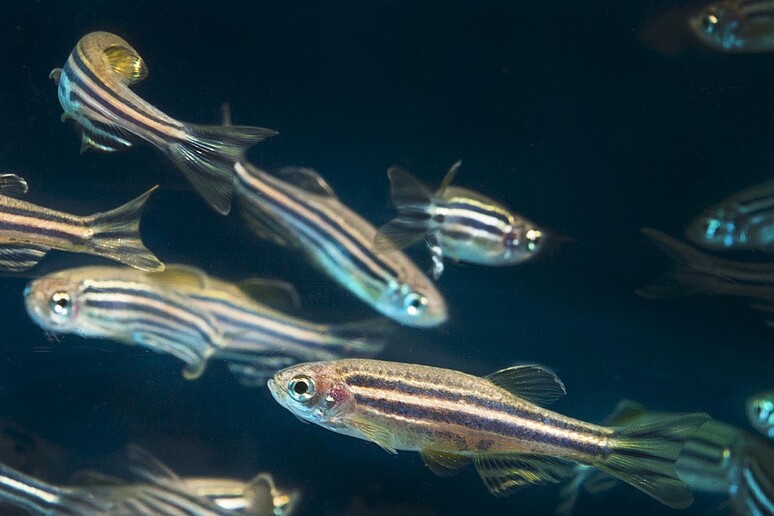Not only humans and birds, but also fish, can count at birth, or rather they know how to recognize numerical differences, according to an Italian study led by Tyrone Lucon-Xiccato of the University of Ferrara, and published in the Communications Biology journal. Conducted on newly-hatched zebrafish, the study suggests the possibility that computational abilities are innate in all vertebrates.
"We carried out a series of tests of various types on zebrafish that had just hatched and the only way to explain their choices is that they know how to count, in some way, or more precisely to recognize the differences between two numerical quantities", Lucon-Xiccato told ANSA. Also part of the research group are Elia Gatto, of the University di Ferrara, and Camilla Maria Fontana and Angelo Bisazza of the University of Padua. In the experiment, the newly-hatched zebrafish were placed in tanks with walls covered in a pattern of vertical black bars in order to simulate the presence of water plants. "Innately,” said the Italian researcher, “the fish always choose to go towards the sides where there is a greater number of bars, probably because they consider it a more sheltered and safer place".
The experiments envisaged various combinations of bars, also with varying widths, and each time it was possible to determine that the choices were always guided by an ability to identify the quantity of bars. "We know that many vertebrates, including humans, possess this ability already in the very early stages of life,” concluded Lucon-Xiccato, “and finding it also in fish embryos suggests that the ability to process numbers is probably due to a full-blown innate neuronal circuit that is common to all vertebrates. It is probably the legacy of a progenitor of all modern vertebrates".
Riproduzione riservata © Copyright ANSA













